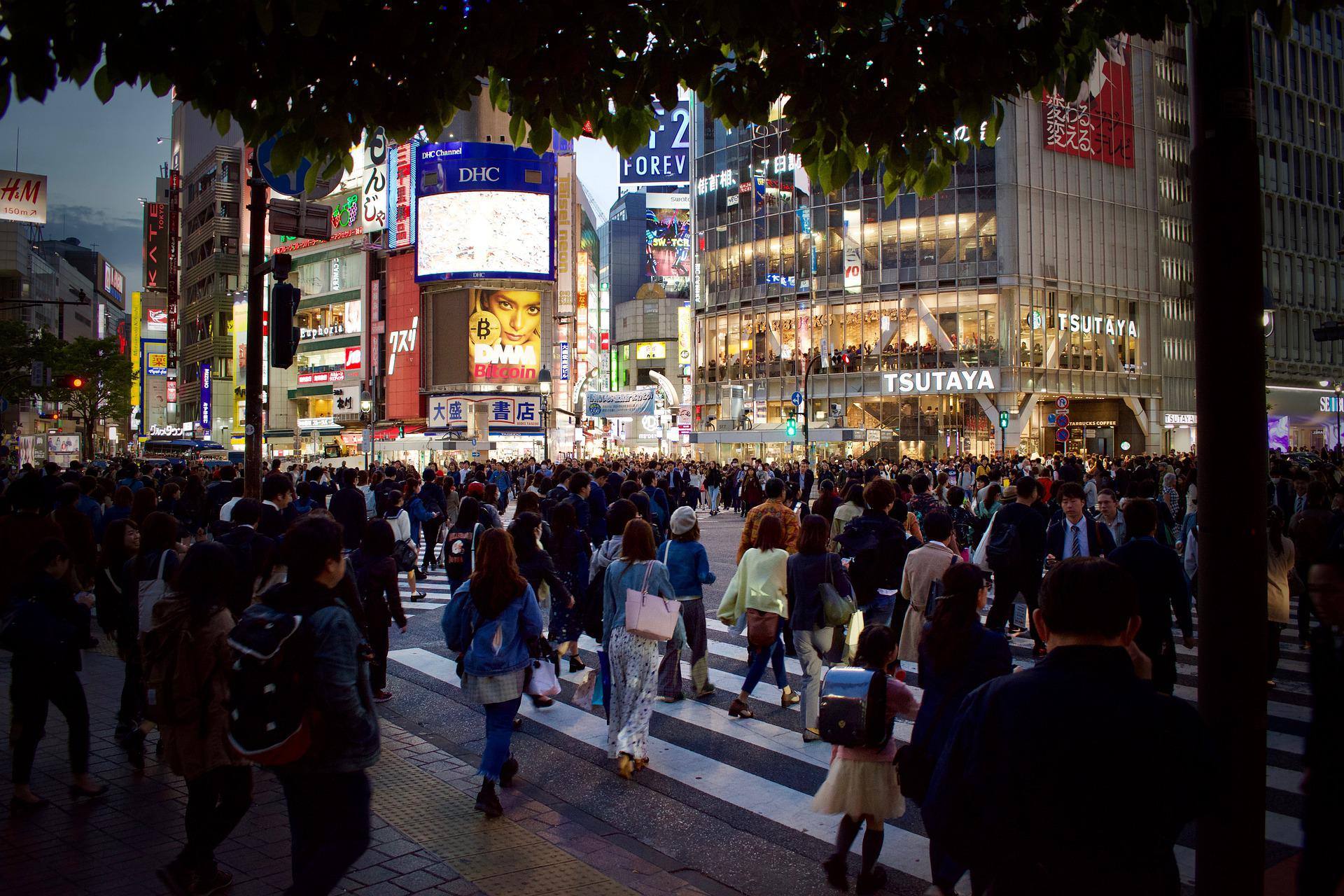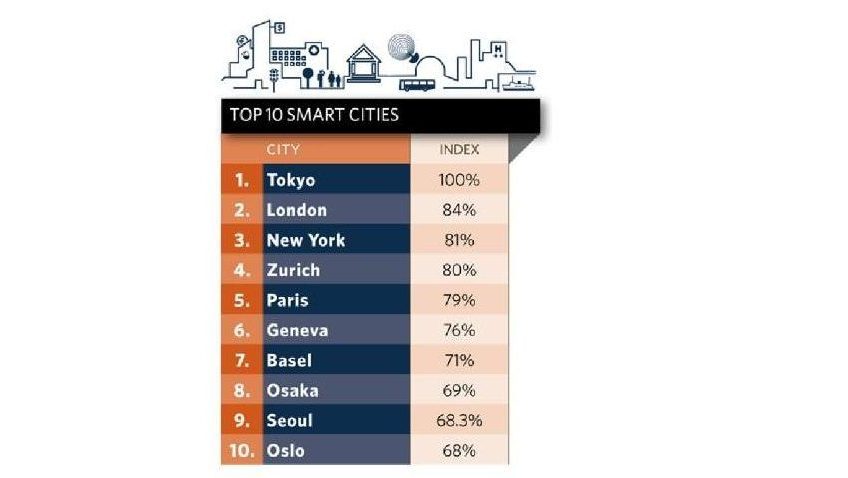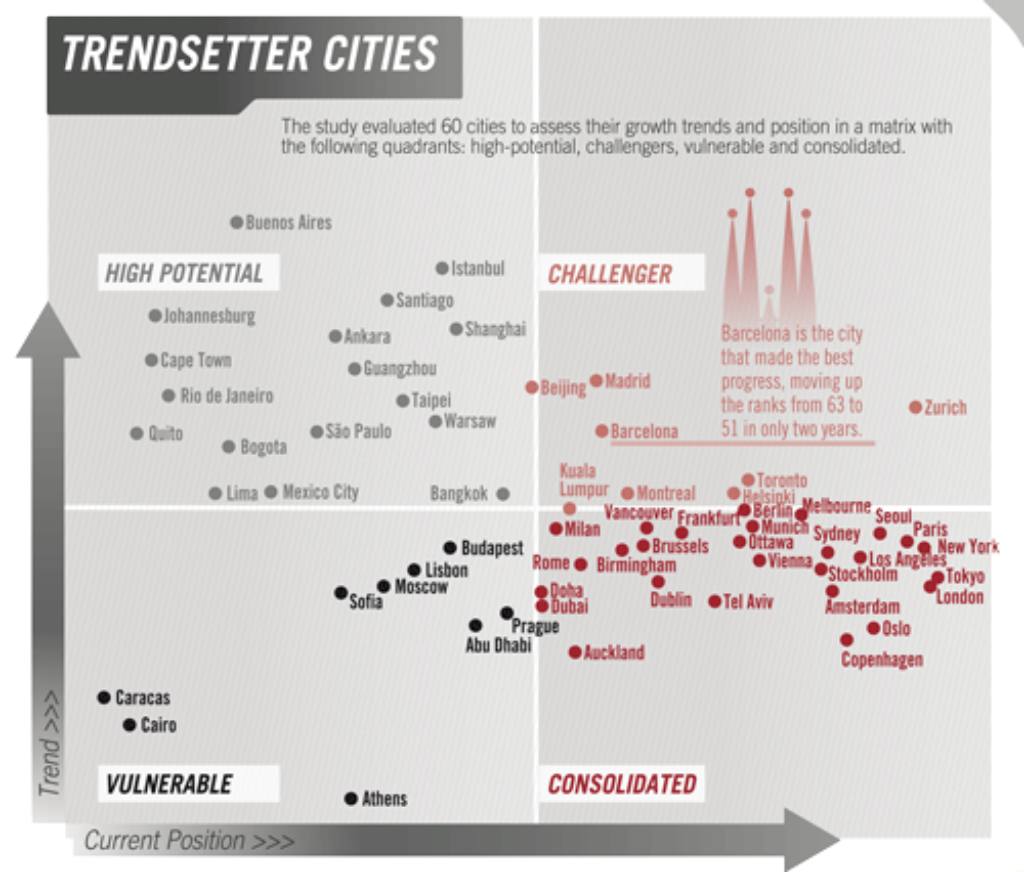
IESE Insight
Which Are the World's "Smartest" Cities?
The IESE Cities in Motion Index enables an objective comparison of cities along 10 dimensions, measuring their sustainability and the quality of life of their inhabitants. As the IESE Cities in Motion report shows, there is no single model of success.
A city's reputation does not always correspond to its reality. Florence, for example, is the sixth "most valued" city in the world. However, it ranks 57th when each of its dimensions is measured objectively.
The winner's podium of the world's "smartest" cities is occupied by Tokyo, London and New York, respectively, for the third consecutive year, according to the IESE Cities in Motion Index (ICIM), supervised by IESE's J.E. Ricart and Pascual Berrone.
To establish this ranking, the researchers studied 135 cities based on 50 indicators along 10 different dimensions.
The Smartest Cities
Of the top 20 cities, 10 are European, six are American, three are Asian and one is Oceanian. Switzerland is the country with the best results overall, with three of its cities appearing in the top 10.
Digging down into the data, it is notable that Tokyo is best for "human capital," but it comes in 20th in terms of "the environment" and 125th for "social cohesion" — a dimension in which half of the world's top 10 cities fall short. Also, Barcelona is the city with the most improvement in ranking, moving from position 63 to position 51 in just two years.

The Search for Smarter Cities
There is no single model of success. To improve a city, the first step is to define the model to be followed and the areas in which the city should improve.
Yet it is not enough for a city to stand out in a single area or dimension: cities should strive to achieve acceptable minimum rates overall, as areas tend to be interrelated. For example, a city's "mobility and transportation" models will have a bearing on "the environment."
One of the main responsibilities of urban planners is to understand these links, and determine the opportunities and threats posed by the national context.
A Pioneering Initiative
Cities are ranked along 10 dimensions considered key to determining their efficiency:
1. Governance: The citizen is the point of contact for solving the challenges facing cities. Significant factors include the level of citizen participation and the ability of authorities to engage business leaders and local agents. Auckland is the top city in this area.
2. Public Management: The actions to improve the city administration's efficiency, including the design of new organizational and management models, are considered. Tokyo is the best in this area.
3. Urban Planning: To improve the livability of any territory and to commit to smart growth, local master plans and the design of green areas and public spaces are taken into account. New methods of urban planning should focus on creating compact, well-connected cities with accessible public services. Berlin is the top ranked city for its planning.
4. Technology: Technological development enables cities to be sustainable over time, expand the competitive advantages of their production system and improve the quality of employment. London ranks first.
5. The Environment: It is imperative to improve environmental sustainability by supporting green buildings and alternative energy, efficient water management, and
policies to help counter the effects of climate change. Zurich, Geneva and Basel are the greenest cities.
6. International Outreach: Cities that want to progress must achieve a prominent position on the world stage. Expanding a city's international outreach involves improving its brand by means of strategic tourism plans, attracting foreign investment and stepping up its presence abroad. London ranks first once again.
7. Social Cohesion: Concern for the social environment requires an analysis of immigration, community development, care for the elderly, inequality, health system efficiency, public safety and more. Eindhoven is the most socially cohesive city.
8. Mobility and Transportation: Getting around cities, which are often large, and facilitating access to public services are great challenges for the future. Berlin is in the lead.
9. Human Capital: The main goal of any city should be to improve its human capital. This means that it should be able to attract and retain talent, create plans to improve education, and boost creativity and research. Tokyo ranks first.
10. The Economy: To promote a city's economic development, this area includes strategic industrial plans, initiatives to spur innovation and entrepreneurship and more. New York is the economic capital.
Among its findings, the report highlights the importance of having a broad overview of urban management. The report also describes a delay in impact of public policies, the influence of the national context, the absence of a single model of success, and the discrepancy between cities' reputations and their realities.

